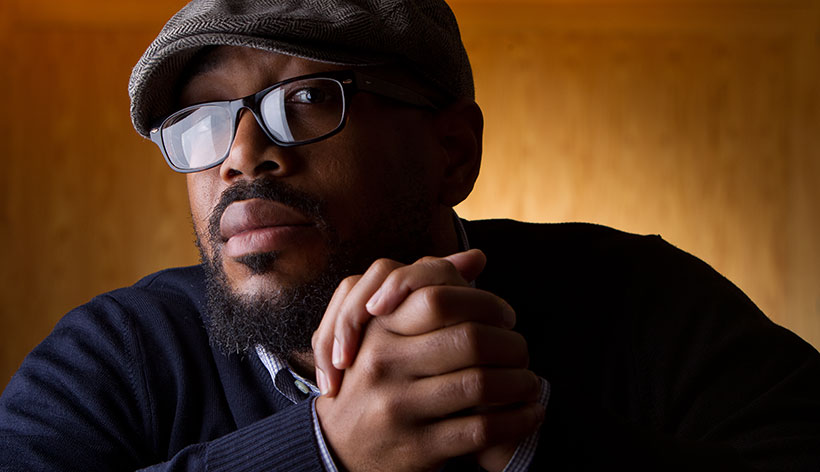Understanding Moonlight

Khary Polk, Assistant Professor of Black Studies and Sexuality, Women’s and Gender Studies. who teaches a course on black masculinity, is on sabbatical in Berlin. Via Skype, he offered observations on the 2017 best picture Oscar winner.
What can history teach us about Moonlight?
The 13th Amendment allowed freed individuals to be conscripted as prisoners. Enslaved blacks were seen as a criminal class. The criminalization of black bodies continues today. It impacts which gender roles the black community celebrates and penalizes. In Moonlight, we see the evolution of Chiron’s masculinity. Stigmatized for his sexuality, he responds by embodying a macho exterior. That form of protection has a long history.
Why is the film important?
It adds to a visual discourse that has not always viewed black men with complex lenses. People have used Moonlight to come out to their families, but you don’t have to be a black queer man to feel the isolation, loneliness and anger that Chiron experiences on his road to manhood. I saw Moonlight at Amherst Cinema. Even though I was one of few people of color in the theater, at the end the only thing I heard around me were tears.
How was Moonlight received in Germany?
While the film does not contain a white savior figure, and while it portrays a world very foreign to Germans, here in Berlin at least, Moonlight has gotten traction. It pushes past the limits of empathy. That’s a special quality in a film. People have identified with the struggles of Chiron.
What are you doing in Berlin?
I’m writing a cultural history of African American military workers. The movement of black soldiers and nurses between 1898 and 1948 changed notions of race, gender and sexuality. My book spends time on black soldiers in a divided Berlin. In her Oscar speech this year, Viola Davis talked about how playwrights exhume bodies in order to tell forgotten stories. The work that I do and try to inspire my students to do is to bring an ear and a caring eye to the archives of history, literature and memory.